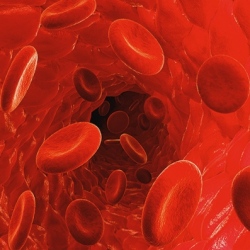
It has been developed at Swansea University’s Institute of Life Science 2 by Calon Cardio, and clinical trials are due to begin in late 2018 with the aim of a full rollout two years later. The pump is implanted into the failing heart and should last about 10 years. Stuart McConchie, chief executive of Calon Cardio, said it was the most-advanced pump of its kind.
"This is for a very sick group of people and there are millions of them in the world, and hundreds of thousands in the United Kingdom," he said.
"It is the first British pump to be built for this purpose: to treat blood which is flowing through the pump extremely gently and not to do any damage to the blood.
"There are other pumps that have been built that do cause some damage to the blood and, as a result, patients have adverse events that diminish the impact of the implantation and the treatment.
"Reliability of these pumps has been established for several years but blood handling is a problem. If they break up red blood cells or white blood cells or damage proteins then there is a cost of that."
The pump is commonly known as a ventricular assist device (VAD) and the one being developed in Swansea is called a MiniVAD.
After being implanted directly into the heart, it is driven by an embedded electric motor and powered by a battery pack worn by the user.
